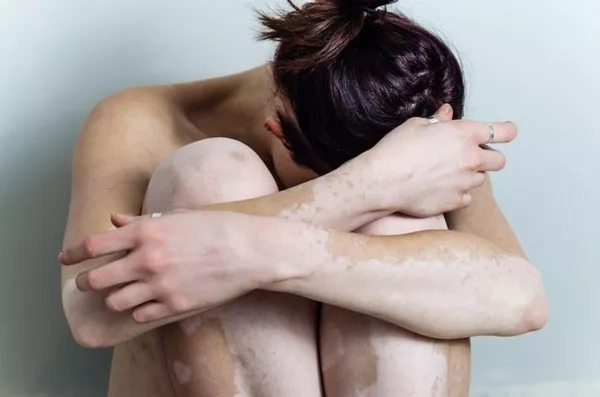Hives, also known as urticaria, are raised, itchy welts on the skin. They can appear suddenly and vary in size. Many people experience hives due to various triggers, including stress. In this article, we will explore how stress can lead to hives, the mechanisms behind this reaction, and ways to manage and prevent stress-related hives.
Understanding Hives
Hives occur when the body releases histamine and other chemicals into the skin. This reaction can be caused by several factors:
Allergies: Food, medications, or environmental factors can trigger hives.
Infections: Viral or bacterial infections can lead to hives.
Physical Factors: Heat, cold, or pressure on the skin can cause a reaction.
Stress: Emotional or psychological stress is a significant trigger for many individuals.
How Stress Causes Hives
When a person experiences stress, the body enters a state of heightened alertness known as the “fight or flight” response. This response is a survival mechanism that prepares the body to deal with threats. Here’s how this process can lead to hives:
1. Hormonal Changes
Stress triggers the release of stress hormones, such as cortisol and adrenaline. These hormones can affect the immune system and increase inflammation in the body. When the immune system is activated, it may release histamines, leading to the development of hives.
2. Immune System Response
Chronic stress can weaken the immune system. A weakened immune system may react more intensely to triggers, including allergens, which can result in hives. In some cases, the body may mistakenly identify non-threatening substances as harmful, leading to an allergic reaction.
3. Skin Sensitivity
Stress can also increase skin sensitivity. When a person is stressed, they may become more aware of sensations in their body. This heightened awareness can lead to a greater perception of itchiness and discomfort, making the individual more prone to scratching. Scratching can worsen the skin condition and lead to the development of hives.
Symptoms of Hives
The primary symptom of hives is the appearance of raised welts on the skin. These welts can:
- Vary in size and shape.
- Itch or cause a burning sensation.
- Appear and disappear rapidly.
- Last for hours to days.
In severe cases, hives can be accompanied by other symptoms such as swelling of the face, lips, or throat, which may indicate a more serious allergic reaction called anaphylaxis. If this occurs, immediate medical attention is necessary.
Diagnosing Stress-Related Hives
Diagnosing the cause of hives can be challenging. A healthcare professional will typically perform a thorough evaluation, including:
Medical History: Discussing recent stressors, allergies, and other potential triggers.
Physical Examination: Inspecting the skin for signs of hives.
Allergy Testing: Conducting tests to identify specific allergens.
In many cases, if no physical cause is found, stress may be identified as the trigger.
Managing Stress-Related Hives
If you suspect that stress is causing your hives, there are several management strategies you can consider:
1. Stress Reduction Techniques
Incorporating stress reduction techniques into your daily routine can be beneficial. Here are some effective methods:
Mindfulness and Meditation: Practicing mindfulness helps you stay present and reduces anxiety. Meditation can calm the mind and lower stress levels.
Deep Breathing Exercises: Simple breathing techniques can activate the body’s relaxation response, helping to alleviate stress.
Physical Activity: Regular exercise releases endorphins, which can improve mood and reduce stress.
2. Healthy Lifestyle Choices
Maintaining a healthy lifestyle can also support stress management and reduce the likelihood of hives:
Balanced Diet: Eating a nutritious diet can help support the immune system. Focus on whole foods, fruits, vegetables, and lean proteins.
Adequate Sleep: Ensuring you get enough rest is crucial for managing stress. Aim for 7-9 hours of quality sleep each night.
Hydration: Staying well-hydrated is essential for overall skin health.
3. Avoiding Triggers
Identifying and avoiding known triggers can help reduce the frequency of hives:
Keep a Journal: Track when hives occur and any accompanying stressors. This can help identify patterns.
Limit Allergens: If you have known allergies, take steps to avoid exposure to those triggers.
Reduce Stressors: If specific situations cause you stress, consider ways to minimize your exposure or seek support.
4. Medications
In some cases, medications may be necessary to manage hives. Consult a healthcare professional for advice on the following:
Antihistamines: Over-the-counter or prescription antihistamines can help relieve itching and reduce hives.
Corticosteroids: For severe cases, short-term use of corticosteroids may be prescribed to reduce inflammation.
Stress-Relief Medications: In some situations, medications for anxiety or depression may be appropriate.
When to Seek Medical Help
If hives are persistent, worsening, or accompanied by difficulty breathing, swelling of the throat, or other severe symptoms, it is crucial to seek immediate medical attention. An allergic reaction can escalate quickly, leading to life-threatening situations.
Long-Term Solutions for Stress Management
Managing chronic stress can lead to long-term relief from hives. Consider the following strategies:
1. Therapy and Counseling
Professional support from a therapist or counselor can be beneficial for those struggling with stress or anxiety. Cognitive-behavioral therapy (CBT) is particularly effective in addressing negative thought patterns and improving stress management skills.
2. Support Groups
Joining a support group can provide a sense of community and understanding. Sharing experiences with others can be comforting and help you learn new coping strategies.
3. Lifestyle Adjustments
Making long-term lifestyle changes can significantly impact stress levels. Consider implementing the following adjustments:
Time Management: Prioritize tasks and break them into manageable steps to avoid feeling overwhelmed.
Set Boundaries: Learn to say no to additional responsibilities that may increase stress.
Engage in Hobbies: Pursuing hobbies and interests can provide a positive outlet for stress relief.
Conclusion
Stress can indeed lead to the development of hives. Understanding the connection between stress and skin reactions is essential for managing this condition effectively. By implementing stress reduction techniques, maintaining a healthy lifestyle, and seeking professional help when necessary, individuals can reduce the frequency and severity of hives. Remember, if you experience severe or persistent symptoms, always consult a healthcare professional for guidance and support.
Related topics:


























